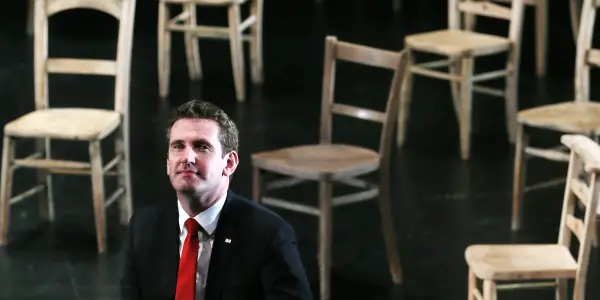Irish premier Enda Kenny has vowed to work with rivals in a fractured parliament to form a government after the most divisive election of recent times.
Confusion remains over the way forward after a massive voter schism in last week’s poll in which the outgoing Fine Gael/Labour coalition was trounced.
Fine Gael and Fianna Fail, traditionally the two dominant parties who swapped power for decades, have enough support between them to form a ruling “grand alliance”.
But while there is little policy difference between the centre-right pair, their historic rivalry born out of Ireland’s civil war more than 90 years ago means a match would be fraught with difficulties.
They are also wary of handing the official opposition to Gerry Adams’s Sinn Fein, the third largest party, which has refused to prop up either of them.
In a statement on Tuesday evening, Mr Kenny said his Fine Gael party would work comprehensively with the manifold forces, factions and Independents to restore political stability in the “changed circumstances”.
“We will engage fully and inclusively with other parties, groups and independent deputies to ensure that such a Government is established,” he said.
The Taoiseach said he is leading his own rank and file to formulate a set of principles that will guide his party’s participation in a future administration.
This would deal with issues “highlighted and prioritised” by voters during the election campaign, he said.
His party was also open to talking about other ideas with other parties and groups “in a new Dail that reflects the changed circumstances following the election.” he added.
The Dail is scheduled to resume on March 10 to elect a new Taoiseach.
But such is the splintering of the vote, uncertainty hangs over whether the diverse parties and groupings can come to any agreement on forming a new government.
One possibility is a minority government, potentially led by Fine Gael which remains the largest party despite its humiliating losses, backed by arch-enemy Fianna Fail in return for some concessions.
Fianna Fail leader Micheal Martin called for all the parties to sit down at the negotiating table to agree parliamentary reforms in advance of talks to forge an administration.
Ex-taoiseach Bertie Ahern has forecast there will be no new government for at least another month.
As tentative moves were made to end the impasse, ousted coalition partners Labour were facing being gagged in the next parliament such is the magnitude of their humbling downfall.
Junior minister Aodhan O Riordain is the latest to join the swelled ranks of his party colleagues who were dethroned after the seismic election.
His ejection in the Dublin Bay North constituency, one of the last to be decided under Ireland’s lengthy count process, was the 26th seat lost by the party after five years in power administering austerity with senior partners Fine Gael.
Labour is looking anxiously at its last hope of being able to effectively contribute in the next Dail with party stalwart Willie Penrose in a nail-biting fight to retain his seat in Longford/Westmeath.
With just six seats retained from its 33 last time around, Labour desperately needs one more to qualify for full parliamentary speaking rights.
Despite their hammering at the ballot box, an emotional but defiant Mr O Riordain insisted his party would live to fight another day.
“Today is the first day of the comeback,” he said after losing his seat to Sinn Fein’s Denise Mitchell.
“Ireland needs the Labour Party and our values system. I absolutely believe we will recover from this and we will have better days again.”
Less than a handful of votes separate Mr Penrose, a former junior minister, and Fine Gael’s James Bannon in Longford/Westmeath, where both outgoing government TDs are scrapping for a seat.
A full recount was ordered in the constituency four days after the general election.
Mr O Riordain, Ireland’s equality minister in the deposed coalition, conceded “the tide was out” for the power-sharing partners.
“We expected that maybe the government would have more support, and that maybe we would be trying to prove to people that Fine Gael needed, I suppose, partners in government,” he said.
“But people made a very clear decision that they didn’t want the government returned.”
